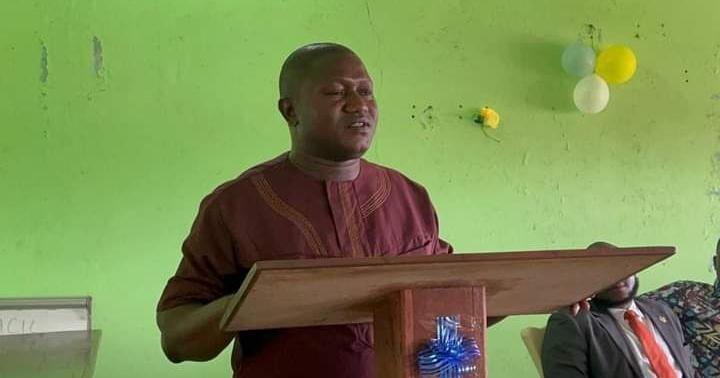Africa-Press – Liberia. The AITB, the government of Liberia’s foremost technical and vocational skills development regulatory institution, is in dire straits and is on the verge of collapse. The bureau’s predicaments are threefold — budgetary support has declined dramatically in recent years, while manpower has reduced both in strength and capacity and the duplication of its functions has worsened.
The bureau’s financial state is in complete paralysis and has only been kept afloat through staff compensation and meager operational support of a little over US$200,000. More than half of this amount goes to employees’ compensation, while the rest towards operations. During the last budget year, it was revealed that of the US$100,000 that was allocated for operational support, only US$12,000 was turned to the entity.
Even in a more precarious state is the AITB’s workforce. At maximum workforce, the entity should have more than 50 employees, but the staff is practically depleted — putting the workforce at a mere 21—all of whom are fully employed and aging civil servants.
The bureau’s headquarters, situated in the compound of the Monrovia Vocational Training Centre (MVTC) is in shambles and needs a serious facelift. In the last six years, the AITB has not done any renovation of the facility and furniture replacement and the only vehicle in its name, given by USAID, is no longer in use. There is no state-of-the-art technology facility at AITB.
Despite all these challenges, the newly appointed management team has resolved to face the challenge head-on and bring the requisite changes that will make the bureau more vibrant.
“His Excellency President Joseph Nyuma Boakai has sent us here to rebrand and revamp this very important government entity, and we have accepted to do so as he has instructed us,” Abraham Billy, the new Director General, told the Daily Observer at the induction of the officials of the new management on Monday, May 27.
Billy and his team, comprising Alphanso Korto, Deputy Director General for Administration, and Wesley D. M. Nyenatoh, Deputy Director General for Technical Services, do not only bring their youthful exuberance to the task, but they come with specialized skill sets that will enable them to institute requisite reforms that will make the AITB thrive.
Bill is an expert in economics, agriculture, statistics, research, and evaluation, specializing in analyzing development programs, strategic planning, and applied research. His experience includes natural resource governance, environment, agriculture, gender, and peacebuilding. With statistical analysis skills, Billy focuses on empowering youth and women, promoting good governance, democracy, and sustainable livelihoods for marginalized groups in Liberia. His work has influenced policies and he has a successful track record both locally and internationally. Billy holds an MSc. in Agricultural Economics from Makerere University.
“The President has explicit confidence in us to bring the needed reforms to this place,” Billy said at the turnover ceremony. “We will ensure that the AITB becomes a center of attraction.”
“The AITB is the technical arm of manpower development for the Liberian government. This is why it was created, and we will make sure that the entity lives up to that,” he added.
AITB and its Enormous Challenges
The AITB was established in 1981 by Decree No. 56 of the People’s Redemption Council to serve as the technical and administrative secretariat of the National Council for Vocational/Technical Education and Training. Its primary objective is to address Liberia’s manpower needs and contribute to the country’s economic and social development by providing various technical and vocational skills. The institution was tasked with regulating vocational/technical education and training according to Liberia’s workforce requirements.
AITB’s core mandates include developing a TVET curriculum, monitoring TVET institutions for compliance, accrediting TVET institutions, conducting trade testing, and training TVET teachers. However, following the civil war and the transition to democratic governance, the institution has been inactive and labeled as “moribund” during Ellen Johnson Sirleaf’s government.
Despite expectations for reform under Sirleaf’s administration to transform AITB into a TVET Commission, this process was not implemented. As a result, the Ministry of Education and Ministry of Youth and Sports have taken more proactive roles in the sector with support from the Government of Liberia, sidelining the Bureau.
Challenges, overlapping functions
AITB faces significant challenges in terms of its functionality as a government agency and its contribution to the country’s economic and social development through vocational and technical education and training. The issue of functionality is largely attributed to the overlapping responsibilities assumed by both the Ministry of Youth and Sports (MYS) and the Ministry of Education (MoE). For example, MoE now certifies TVET trainees while MYS operates TVET institutions in collaboration with MoE and certifies them post-training. This situation arose when former President Johnson-Sirleaf appointed MYS as the supervising lead on TVET, and after the introduction of the Education Reform Act, MoE took on additional TVET roles. The management of AITB believes that this was a mistake and a key factor contributing to the entity’s current dysfunction.
“We cannot continue on this path. My team and I will ensure that the AITB plays the roles for which it was created,” Billy said. (You can also add some comments to highlight your stance on reclaiming your roles.)
Lack of Independence
In response to the technical and vocational training and education gap in Liberia. AITB was established to administer the TVET programs of Liberia. This mandate has seen little execution given that the entity’s independence has been crippled and left to wander for visibility. Currently, there is a draft TVET Commission law that failed to meet legislative endorsement due to concerns of duplication of roles, since AITB already exists to implement the same function. However, the management team informed that they have endorsed that draft law since it is a build-up from the current PRC Decree No. 56 which established the entity.
Decline in Technical Staff and Manpower Challenge
At the maximum workforce, the entity should have a total of 50 employees. However, currently, the entity has only 23 employees who are all fully employed civil servants. In terms of salary disparity, the range from the lowest to highest is USD$150–USD$1700.
“We want to change this situation and we will work hard to do so,” Billy said. “Workers must be motivated on the job, which is the only way to become more productive.
Comparatively, the AITB functions like the WAEC, which was founded principally to administer TVET examinations and evaluations in theory and practice. This means all TVET institutions and trainees must obtain a final examination report and certification from AITB to operate within the sector.
But in reality, the bureau has struggled with finding traction and visibility within the industry, mostly due to other government institutions’ duplication and usurpation of its functions.
Billy says this has to change. “We must take our rightful place in the industry and we will work with and engage the relevant government institutions to correct this problem,” the new AITB DG said.
He lauded his predecessor for keeping the bureau alive despite the enormous challenges.
For More News And Analysis About Liberia Follow Africa-Press






